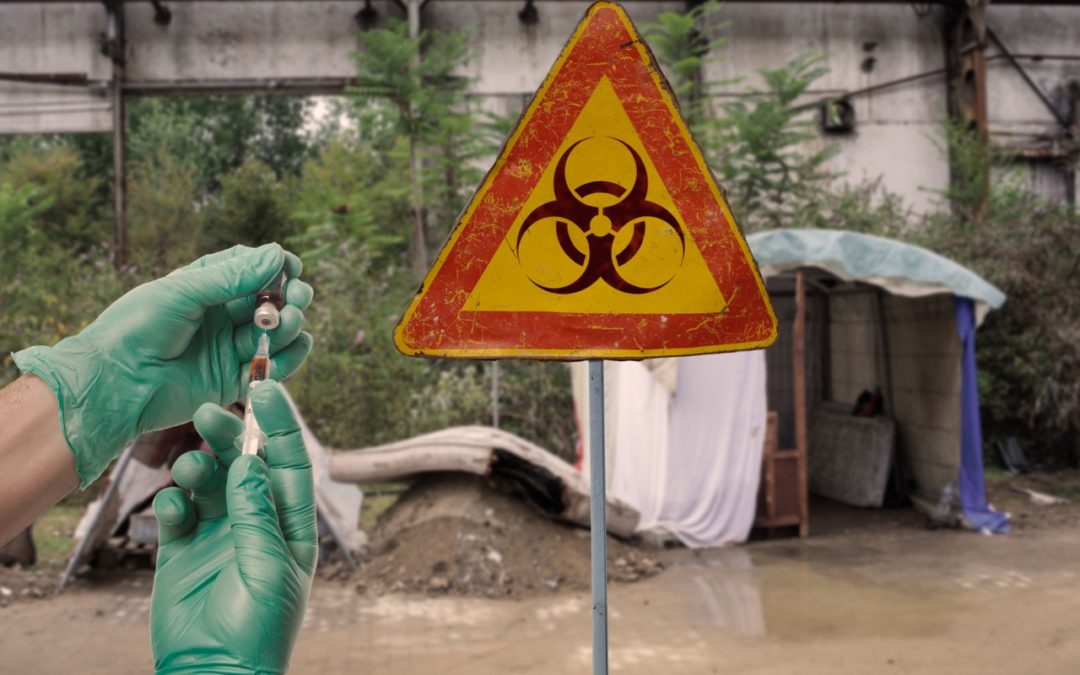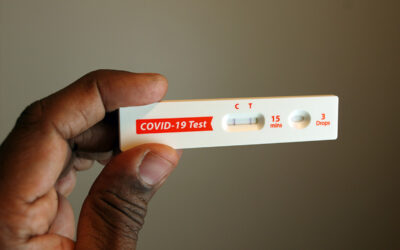The Ebola epidemic is still raging through West Africa. Thousands are dead, including many health care workers who bravely fought the disease on the front lines.
There is an urgent demand to develop the medicines needed to defeat Ebola. Experimental drugs are being rushed to field hospitals. While it is projected that large batches of drugs should arrive by January, many thousands will by then be dead–and tens of thousands will likely be infected.
Much has already been written about why the world was caught “off guard” when the Ebola epidemic struck despite warnings by infectious disease experts. We have a highly sophisticated pharmaceutical industry (Big Pharma) that produces a steady stream of “miracle” drugs. But what drives the research and development of these ubiquitous medicines is singular: profit.
Until now, there has been no financial return for Big Pharma to produce medicines required mainly or exclusively in impoverished West African countries; countries without the capacity to pay for the research, development, and procurement of these medicines. But that changed a few months ago when the number of cases jumped dramatically and infected people started appearing on America’s shores. Ebola is now perceived as a threat to the US and Europe. Therefore, medicines must be developed to protect the homeland by eradicating this frightening disease at its source.
These drugs will soon appear. They will be rushed to market, and billions of dollars in profit will be generated as governments (read: taxpayers) and insurance companies (read: health insurance consumers) foot the bill.
Health Care Economics 101: Follow the Money
Let’s look at how this equation works in our own medical culture. When a person has an acute bacterial infection, the treatment is generally a course of antibiotics. This usually lasts one week, more or less. The offending bacteria are killed off. The job is done.
A major critique of antibiotic therapy has been that its overuse has led to the appearance (through genetic mutation/evolution) of antibiotic resistant bacteria and the diminished effectiveness of workhorse medicines. Fears arise of new “super bugs” that will decimate populations. These fears are not unfounded—yet we see very few new antibiotics entering the market. There is a reason for this.
Bacterial infections, when treated appropriately, are usually short-lived. Not so chronic diseases such as diabetes or hypertension (high blood pressure). For these ailments, medicines are prescribed not to cure the disease but to manage it: to keep the body functioning within normal parameters and avoid the most negative impacts of the ailment. In the case of hypertension, this would mean heart attacks and strokes; with diabetes, gangrenous limbs, requiring amputation. These medications need to be taken as long as the disease is present. This is usually the remainder of the patient’s life.
So where is more money made: on an antibiotic to be taken for one week or on a medication to be taken for the life of a patient? The answer to this question is what drives pharmaceutical research and development. This is why there have been so few new antibiotics developed to address the ineffectiveness of the old standbys. Putting the blame on medical doctors for overprescribing is disingenuous. New antibiotics are not being developed for the same reason that Ebola medications had not yet been developed: they do not provide the “return on investment” that chronic disease medications do.
Health Care Economics 201: The Road to Wellness
In an earlier time (i.e., the 1980’s) when more employers covered the full cost of health insurance and the benefits were generous, a person with a chronic disease like diabetes might go to the pharmacy and pick up their monthly medication for as little as $10. Today, in an era of high deductibles (sometimes as much as $6000) and reduced re-imbursements, that bill at the pharmacy might be $350. This “sticker shock” has been a wake-up call for many consumers and is forcing people to re-evaluate how they think about their health.
Part of the solution to avoiding these extravagant costs seems obvious. We must focus on wellness: the prevention of disease. It has been clearly established that proactive care (given before diseases manifest) is much less costly than reactive treatment. Large and forward thinking companies like Google and Apple understand this and are taking their employees’ health seriously by building on-site gyms and integrative care clinics, providing nutritious food, and creating healthy, ergonomically designed work spaces.
Simultaneously, drug store shelves bulge with medications for diabetes, high blood pressure and acid reflux. Using its marketing muscle, Big Pharma works to convince us that it is “normal” to live on a mix of medicines designed to keep us “healthy.” Corporate interests are focused on profits first, not health. The sicker we are, the more money they make.
“Occupy Health”
We need an “Occupy Health” movement. We must reject the corporatization of our health care system and take responsibility for our individual and societal health.
First, we can change our own society so that the causes of chronic diseases are reduced. Most of these diseases, for which new medicines are continually developed, are preventable through nutrition and exercise. They are diseases caused by our modern lifestyles. The cure for them is healthy living. This means taking control through movement and wholesome eating; avoiding fast food restaurants; and demanding sanctions (through taxation) on the soda and junk food makers. By becoming healthy, we will be divesting from Big Pharma.
The Occupy Health movement must also demand that our tax dollars be used to support research and development of medicines –whether new antibiotics or vaccines for exotic infectious diseases–which are needed globally, regardless of profit potential. Taxes should be used to support our public health system, rather than to disproportionately subsidize corporate (for profit) pharmaceutical research.
And we must insist that a meaningful portion of our foreign aid money be used to build hospitals, improve the quality of drinking water and sanitation systems and expand early childhood vaccination programs in those countries most likely to incubate frightening diseases like the Ebola virus.
The result of this revolution will be a higher quality of life and fewer deadly plagues like the one we are now witnessing in Sierra Leone, Guinea and Liberia. Disease destabilizes individual lives and political systems. Supporting health and wellness supports all of us. We are one world.
But if we trust this work to those who benefit from perpetual sickness, it will never come to pass.
Dr. Ricky Fishman has been a San Francisco based chiropractor since 1986. In addition to the treatment of back pain and other musculoskeletal injuries, he works as a consultant in the field of health and wellness with companies dedicated to re-visioning health care for the 21st century.
Copyright 2014 Ricky Fishman














Great read Ricky
Sent from my iPad
>
Great article Dr Fishman! The Southern California University of Health Sciences supports your position for our communities and individuals to take more responsibility for health and wellness and to influence the changes needed in our ‘healthcare’ system. Well done.
John Scaringe, DC, EdD
President, Southern California University of Health Sciences
Good stuff!
Yes!!! 100% agreement from this small corner of the world…